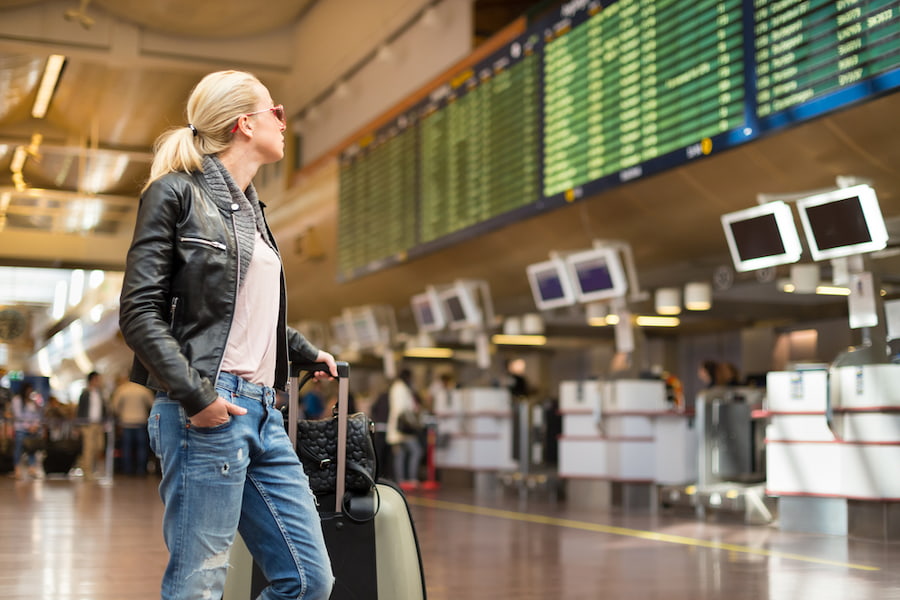Introduction:
If an airplane is delayed, passengers could grow irritated and uncomfortable. Passengers do have certain rights, though, and have the right to compensation when their planes are delayed according to several aircraft laws and regulations. This article’s primary objective is to provide a detailed explanation of how to file a claim for compensation for a delay in your flight. To support a speedy and efficient compensation process, traveler rights, eligibility requirements, claim methods, and some critical recommendations are all offered.
The flight-delayed solicitor in Manchester patiently assisted frustrated passengers in seeking compensation and legal advice, offering expert guidance and support during unforeseen circumstances.
What Is The Process Of Claiming Compensation For A Delayed Flight?
Passenger Rights and Eligibility for Compensation:
Passenger rights and the eligibility for compensation vary depending on the jurisdiction and specific aviation regulations in place. However, the most widely recognized set of rules is the European Union Regulation 261/2004, commonly known as EU261. This regulation applies to all flights departing from an EU airport or those operated by an EU-based airline to an EU airport, regardless of the passenger’s nationality.
According to EU261, passengers are eligible for compensation if their flight is delayed for more than three hours upon arrival at the final destination, and the delay is the airline’s fault. Extraordinary circumstances, such as severe weather, security threats, or air traffic control restrictions, may exempt the airline from paying compensation.
For flights outside the EU, the rights and eligibility criteria vary according to the respective national or international aviation laws, and passengers should familiarize themselves with the specific rules applicable to their journey.
Gather Relevant Information:
If your flight is delayed and you believe you are entitled to compensation, the first step is to gather all relevant information. This includes:
Flight details: Note down the flight number, date, and time of departure and arrival.
Boarding pass and booking confirmation: Keep a copy of your boarding pass and booking confirmation, as they serve as proof of your reservation and travel.
Delay details: Record the reason for the delay provided by the airline staff or any other relevant information regarding the delay.
Witness statements: If possible, gather statements from fellow passengers who were on the same flight and experienced the delay.

Know Your Rights and Eligibility:
Before proceeding with your claim, ensure that you meet the eligibility criteria for compensation. As mentioned earlier, EU261 covers flights departing from EU airports or operated by EU-based airlines to EU airports. However, other regions may have different regulations, so it’s essential to understand the applicable rules.
Contact the Airline:
Once you have all the necessary information and confirm your eligibility, contact the airline that operated the flight. Airlines typically have customer service departments that handle compensation claims. You can reach out to them through various channels, including phone, email, or their official website.
Provide the airline with all relevant details about your flight and the delay, including your booking reference, flight number, and any other relevant documents. Be polite and assertive during your communication to ensure a better response.
Understand the Airline’s Response:
Upon receiving your claim, the airline will investigate the delay and the circumstances surrounding it. They may respond with one of the following outcomes:
Compensation Offer: If the airline acknowledges that the delay was within their control and you are eligible for compensation, they may offer you compensation in the form of cash, travel vouchers, or other benefits. Evaluate the offer carefully to ensure it aligns with your rights.
Rejection or Extraordinary Circumstances: The airline may reject your claim, citing extraordinary circumstances beyond their control. If you disagree with their assessment, you have the right to challenge their decision.
Escalate the Claim:
If the airline rejects your claim or provides an unsatisfactory compensation offer. You have the option to escalate the matter to the appropriate aviation regulatory body or an alternative dispute resolution scheme. In the case of EU261, you can contact the national enforcement body in the EU country where the delay occurred.
Additionally, some countries have specialized agencies or departments responsible for handling aviation-related complaints. Ensure you provide them with all the necessary documentation and information to support your claim.
Speak with a Lawyer:
In some cases, it may be necessary to consult a lawyer, particularly when navigating complex legal requirements or when the airline is recalcitrant. Aviation law firms are there to help you through the process. Ensuring that your freedoms are protected and that you receive the compensation you are entitled to.
Conclusion:
Claiming compensation for a delayed flight can be a time-consuming process. But it is essential to assert your rights as a passenger. Understanding the applicable regulations, gathering relevant information, and communicating effectively with the airline are crucial steps in the process. Remember that each jurisdiction may have different rules, so be sure to familiarize yourself with the specific regulations that apply to your situation. By being well-informed and persistent. You increase your chances of successfully claiming compensation for a delayed flight and receiving the reimbursement you deserve.

